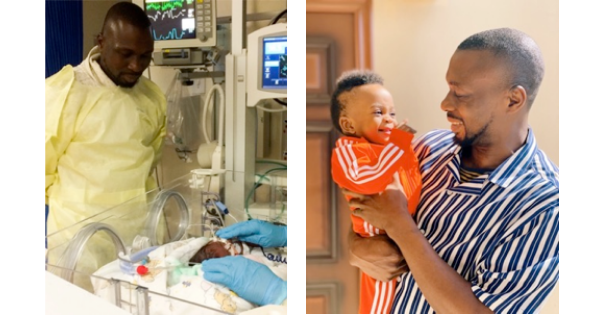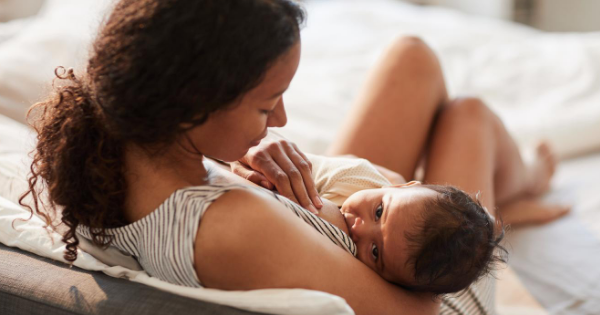South Africa has one of the lowest breastfeeding rates in the world. Not because women do not understand the importance of breastfeeding for their children but because women face a hostile environment to care for their children. This World Breastfeeding Week, observed from 01 to 07 August, the South African Civil Society for Women’s, Adolescents’ and Children’s Health (SACSoWACH) are focusing on creating an environment that enables and supports women to breastfeed successfully.
Due to our current global crises, with the engulfing COVID-19 pandemic and the subsequent economic crash, women are bearing the brunt of job losses. Female-headed households, especially, are experiencing a financial shock,1 adding to the burden of finding food for their families and caring for their children. In South Africa, nearly one in two households are headed by women, skewing the need to provide unfairly on mothers.
South Africa is known as ‘the fatherless nation’ as it has one of the highest numbers of absent fathers in the world. It is estimated that nine million children in South Africa grow up without fathers.2,3 In a recent media report, even our Springbok captain has had to call on men to support and eradicate the scourge of abuse and violence against women.4

Breastfeeding is excellent for infants and young children as a food source, for immunity and for neurocognitive development, and emotional self-regulation.5 “The first step to creating a supportive and safe environment for women and children is the essential provision of food for pregnant women and breastfeeding mothers. Safety and protection for moms, as the life-carrier and carer of children, is non-negotiable,” explains Dr Tshepo Motsepe, First Lady of South Africa, patron of the Coalition, passionate breastfeeding activist and humanitarian.
The high rates of violence in South Africa cannot be ignored. Breastfeeding is associated with less violence in societies.5 Research also shows that 80% of rapists are the product of absent fathers.3 Young men who grow up without involved fathers are more likely to develop ‘hyper-masculine’ behaviours such as aggression and emotional instabilities. In contrast, young women are more likely to develop lower self-esteem and become victims of violence.3 Many hungry and stunted children live in fatherless homes1 where suicide is more likely in these individuals.3

“We need fathers and empowered men to step up and invest in the future of our society. Children are our future; the outcomes we want for tomorrow begins with what we do today. We call on all men to set an example and provide emotional and financial support, as far as possible, for the family and breastfeeding partners. This will help women to breastfeed exclusively and relieve them of the pressure to return to work too early,” explains Patrick Shivuri, Maternal and Child Health Programme Manager from Save the Children and a father himself.
“Food security for infants and young children starts at the breast. Breastmilk is a living food; it protects against many infections that include COVID-19. If we want to protect children’s health, we need to protect and support their mothers,” adds Dr Chantell Witten, nutrition lead for SACSoWACH and lecturer at the University of the Free State.
This has never been more relevant in a time when food is scarce and financial resources constrained. “Reducing Gender-Based Violence starts with protecting, promoting and supporting breastfeeding mothers at all cost. Paternal presence both emotionally and financially is a long-term investment for a healthy and less violent South Africa,” ends Precious Robinson, SACSOWACH chairperson and health advocate from Right to Care.
In celebration of World Breastfeeding Week, SACSoWACH will host a breastfeeding dialogue on Thursday, 06 August 2020. The discussion will be live-streamed on their website; please visit www.sacsowach.org.za to find out more and sign up.
References:
- van den Berg et al. (2020) https://cramsurvey.org/wp-content/uploads/2020/07/Van-der-Berg-Coronavirus-Lockdown-and-Children-1.pdf
- Fazel, F. (2017) Responding to the challenge of father absence and fatherlessness in the South African context
- Salami, I. and Okeke, C. (2018) Absent fathers’ socio-economic status and perceptions of fatherhood as related to developmental challenges faced by children in South Africa
- Gallan, D. (2020) https://www.theguardian.com/sport/2020/jul/18/siya-kolisi-if-we-educate-our-sons-we-wont-have-to-protect-our-daughters
- Mientka, M. (2013) Breastfeeding Provides Social Advantages Later In Life
- Smith, G. (2020) Over 5 million children are still going hungry in SA

About SASCoWACH
In South Africa, there are a number of civil society organisations (CSOs), institutions and individuals working within child, adolescent and maternal and women’s health who have the potential to positively influence policies and programs to address Reproductive, Maternal, Neonatal, Child and Adolescent Health (RMNCAH) and to raise awareness amongst key target audiences, including the community.
For this reason a CSO coalition was formed in 2015 called the South African Civil Society for Women’s Adolescents’ and Children’s Health (SACSoWACH). SACSoWACH has a very important function, to strengthen the link with government and the community, to mobilise the community to increase demand for essential services they are entitled to, and to enforce the accountability of the Department of Health in its commitment to improve access to quality reproductive healthcare. These actions are essential for the achievement of the Sustainable Development Goals (SDGs) 2016 onwards.

About South African Breastmilk Reserve
The South African Breastmilk Reserve (SABR) is a not-for-profit, human milk-banking organisation, founded in 2003. While we are primarily an altruistic human milk-banking network, we also focus on breastfeeding advocacy and promotion, in order to grow breastfeeding in South Africa. For more about SABR visit: https://www.sabr.org.za.
 Kaboutjie SA Mommy Blogs by Lynne Huysamen
Kaboutjie SA Mommy Blogs by Lynne Huysamen





I have breastfed my little boy since birth. He is four years old now and still wants to be breastfed. I don’t give in though but I feel so bad if I don’t. Any advice?
I am a total advocate for breastfeeding your little one 🙂
Thanks so much for this Article
Very interesting, thank you for an amazing write up